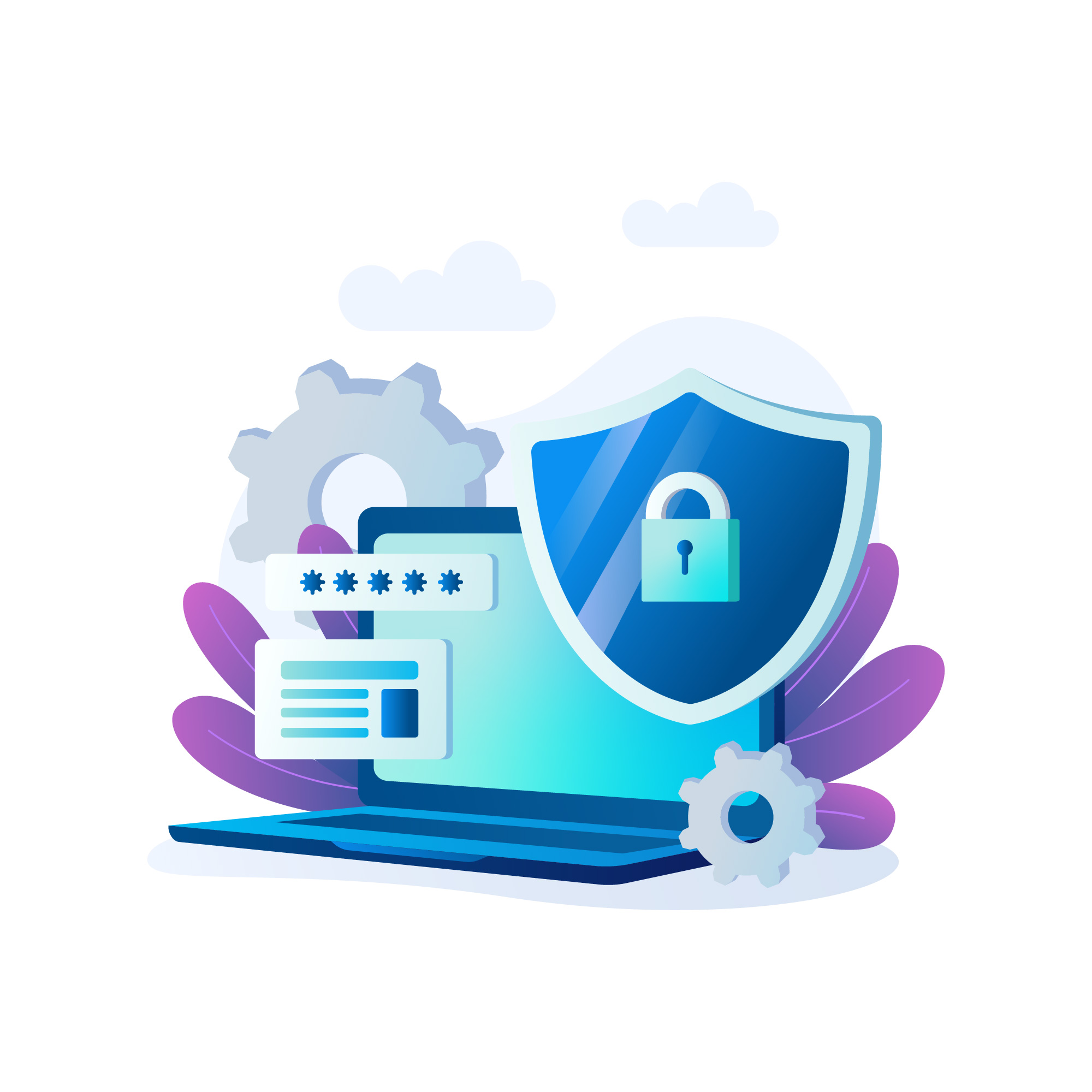
by Rebeca | Oct 4, 2023 | cybersecurity, soffid
The financial services sector is currently facing a myriad of challenges that require a delicate balancing act between enhancing customer experience, combating fraud, meeting regulatory requirements, and optimizing operational efficiency. In this ever-evolving landscape, the industry’s traditional approach to security and compliance is being put to the test.
The battle against fraud
One of the foremost challenges in the financial sector is the escalating battle against fraud. As digital channels become increasingly popular, they offer both opportunities and vulnerabilities. While businesses aim to streamline operations and offer more convenient services, cybercriminals are quick to exploit any weaknesses they find.
Financial institutions are constantly looking for ways to reduce fraudulent activities, but these efforts often introduce friction into the customer experience. Additional security measures, such as multi-factor authentication, can make transactions more cumbersome for customers. Striking the right balance between security and user-friendliness is no easy task.
Regulatory compliance
In parallel, regulatory bodies are tightening their grip on the financial industry. New compliance requirements are regularly introduced to safeguard customer data and maintain the integrity of financial systems. While these regulations are essential for protecting consumers and the industry, they can create additional challenges.
Meeting these compliance requirements often demands significant investments in technology and resources. The complexity of adhering to multiple regulations across different regions can be daunting. Financial institutions must remain agile to adapt to these evolving compliance standards while ensuring they do not disrupt their core operations.
Operational efficiency and agility
In the quest for operational efficiency and agility, financial organizations are looking to consolidate their technology stacks and transition to more flexible, cloud-based infrastructures. This move promises cost savings and improved scalability. However, it also introduces new security challenges.
The shift to the cloud requires a reevaluation of security protocols to ensure data remains protected in a shared environment. It also demands robust identity and access management solutions to prevent unauthorized access to sensitive information.
The role of digital security technology
To navigate these challenges successfully, financial institutions need innovative digital security technology. This technology should not only safeguard customer data but also adapt to evolving threats. A proactive approach to security is crucial.
Equally important is the guidance of experienced partners. Navigating the complex landscape of financial security and compliance requires a deep understanding of industry-specific challenges and regulations. Experienced partners can provide insights and solutions tailored to the unique needs of financial organizations.
A Never-Ending Effort
It’s essential to recognize that financial security and compliance are ongoing efforts. Cybercriminals are persistent, continually searching for vulnerabilities to exploit. While no system can guarantee 100% safety indefinitely, staying one step ahead of these bad actors is possible.
If you need advice and to implement more security in your company, we can help.
Shall we talk?

by Rebeca | Sep 27, 2023 | Uncategorized
The adoption of cloud technology has been a consistent trend in the world of technology. Organizations are migrating their data and applications to cloud environments to leverage the benefits of scalability, flexibility, and efficiency. However, this transition poses significant challenges in terms of identity and access security. This is where Cloud Identity and Access Management (IAM in the Cloud) plays a crucial role in safeguarding digital identities and sensitive data.
The Evolution of IAM into the Cloud
Traditional IAM used to rely on on-premises systems and centralized IT infrastructure. Users authenticated within an internal network and had access to resources within the company’s premises. However, with the advent of cloud computing, this dynamic changed dramatically. Employees, partners, and clients can now access a company’s resources from anywhere and at any time, creating new challenges in terms of security.
IAM in the Cloud has emerged as the solution to these challenges. It enables organizations to efficiently manage who has access to which resources in cloud environments while ensuring that security and compliance remain intact.
Advantages of IAM in the Cloud
- Scalability: IAM in the Cloud can grow as your organization does. It can easily adapt to the number of users and resources you need to manage.
- Secure Remote Access: It allows users to securely access resources from any location, provided they have the appropriate credentials and comply with security policies.
- Compliance and Audit: It facilitates the implementation and compliance with security policies and regulations, such as GDPR or HIPAA, through detailed activity logs and audits.
- Centralized Management: IAM in the Cloud provides a unified view of all identities and resources, simplifying administration and decision-making.
- Cost Reduction: By avoiding the need for on-premises infrastructure, it reduces maintenance and system IAM update costs.
Challenges of IAM in the Cloud
While IAM in the Cloud offers numerous advantages, it also presents unique challenges:
- Credential Security: Password management and authentication remain critical. Strong passwords, multifactor authentication, and key management are essential to protect digital identities.
- Unauthorized Access: With broader remote access, there is an increased risk of unauthorized access. It’s important to implement access control policies to mitigate this risk.
- Data Privacy: Identity management often involves handling personal data. Organizations must ensure the privacy of this data and comply with relevant privacy regulations.
- Complex Integration: Integrating IAM into existing cloud infrastructure can be challenging. IAM in the Cloud solutions must be compatible with a variety of cloud services and applications.
Considerations for Implementing IAM in the Cloud
Before implementing IAM in the Cloud, it’s important to consider some key aspects:
- Vendor Evaluation: Choose a reliable IAM in the Cloud provider that aligns with your specific needs.
- Security Policies: Define clear security policies and configure precise access rules to protect critical resources.
- Training and Awareness: Train users and IT staff on security best practices and proper credential usage.
- Continuous Updates: Keep your IAM in the Cloud solution up to date to address emerging threats and security updates.
IAM in the Cloud is essential to ensure the security of digital identities in constantly evolving cloud environments. As organizations continue to embrace the cloud, the effective implementation of IAM in the Cloud becomes a critical component to protect digital assets and maintain the trust of users and customers.
At Soffid, we assist you with all the steps.
Shall we talk?

by Rebeca | Sep 20, 2023 | Uncategorized
Organizations rely on a complex web of accounts, credentials, and secrets to manage their IT ecosystems. While these components are essential for streamlining business processes, they also pose significant identity and security risks. This article delves into the world of Identity Risk & Compliance (IRC), shedding light on the challenges organizations face and the strategies employed to mitigate these risks.
The power of special accounts and credentials
Some accounts and credentials wield immense power within an organization. Possession of these secrets grants individuals the ability to control critical resources, disable security systems, and gain access to vast amounts of sensitive data. This inherent power makes them a prime target for malicious actors seeking unauthorized access to an organization’s systems and information.
It comes as no surprise, then, that internal auditors and compliance regulations have established specific controls and reporting requirements for the usage of these high-privilege credentials. Managing these credentials is not only a security imperative but also a regulatory necessity to ensure the integrity and compliance of an organization’s IT operations.
The complexity of interconnected IT ecosystems
Modern organizations operate within highly interconnected IT ecosystems. While this interconnectedness offers numerous benefits, it also introduces complexities and risks that can be challenging to manage effectively. Core risks must be identified, analyzed, and monitored to create a comprehensive Governance, Risk, and Compliance (GRC) vision.
Interconnected IT ecosystems often blur the lines of responsibility and oversight, making it difficult to pinpoint potential vulnerabilities. Organizations need a proactive approach to identify and address these risks before they are exploited.
Empowering identity risk & compliance
To address the ever-evolving challenges of Identity Risk and compliance, organizations turn to advanced solutions like Soffid. Soffid is equipped with a range of functionalities designed to bolster security and compliance efforts. Here are some key features that make Soffid a valuable ally in the battle against identity-related risks:
Federation Functionalities: Soffid’s federation functionalities allow organizations to establish secure connections between systems and applications. This enables streamlined access control and authentication mechanisms, reducing the risk of unauthorized access.
Privileged Account Management: Managing high-privilege accounts is a critical aspect of IRC. Soffid provides robust privileged account management capabilities, ensuring that these accounts are protected and monitored closely to prevent misuse.
Low-Level Permits: Granular access control is essential to limit access to sensitive resources. Soffid offers fine-grained permission settings, enabling organizations to enforce the principle of least privilege and reduce the risk of unauthorized access.
Separation of Functions: The principle of separation of duties is fundamental to reducing the risk of fraud and unauthorized activities. Soffid helps organizations define and enforce clear separation of duties policies, ensuring that critical tasks require multiple individuals for approval.
Recertification Processes: Regularly reviewing and recertifying access rights is vital to maintaining a secure environment. Soffid automates the recertification process, making it easier for organizations to ensure that access privileges align with current roles and responsibilities.
Intelligent analytics and holistic risk management
One of the standout features of Soffid is its intelligent analytics capabilities. These analytics continuously monitor for and identify new access risks within an organization’s IT environment. By providing native connectors with GRC solutions, Soffid empowers risk managers to create holistic enterprise risk management strategies.
With real-time insights into access patterns and potential vulnerabilities, organizations can proactively address emerging risks, reducing the likelihood of security incidents and compliance breaches.
Solutions like Soffid are crucial in helping organizations navigate the complexities of Identity risk and compliance. By offering advanced functionalities and intelligent analytics, Soffid empowers organizations to proactively identify, assess, and mitigate risks, ultimately strengthening their security and compliance posture in an interconnected digital landscape. As the digital realm continues to evolve, investing in IRC solutions becomes a strategic choice and a necessity to safeguard an organization’s assets and reputation.
Shall we talk?

by Rebeca | Sep 13, 2023 | Cliente, cybersecurity, News
Personal data protection is an immensely relevant topic today as businesses confront a growing number of cyber threats and heightened scrutiny from regulators and the general public. The significance of safeguarding personal data cannot be underestimated; it extends beyond compliance with privacy regulations and encompasses preserving customer trust and the integrity of the company in an increasingly interconnected world.
Corporate Responsibility in the Digital Era
In the current digital age, where data flows through global networks at a breakneck pace, businesses bear a significant responsibility to protect the personal information of their customers, employees, and business partners. Personal data protection is not merely a legal obligation; it is an ethical commitment and a fundamental asset for the reputation and continuity of the business. Companies that handle and store personal data must grasp the importance of proactively preserving the privacy of these individuals.
Compliance with privacy regulations such as the General Data Protection Regulation (GDPR) in the European Union or the California Consumer Privacy Act (CCPA) in the United States is essential. Compliance with these regulations involves respecting individuals’ privacy rights, obtaining informed consent for data processing, and ensuring the security of information. However, personal data protection goes beyond rule-following; it involves establishing a data security culture that engages the entire organization and strives to minimize the risk of exposing confidential information.
Building Trust through Data Privacy
Data privacy is not solely a matter of legal compliance; it is a way to build and maintain trust with customers and business partners. Companies that demonstrate a strong commitment to personal data protection not only avoid fines and penalties but also position themselves as industry leaders in terms of reliability and business ethics.
To achieve this level of trust, companies must adopt a comprehensive approach to cybersecurity. This includes implementing technical measures such as data encryption and multifactor authentication, as well as providing ongoing training to employees on secure practices. Establishing an incident response team and preparing for potential data breaches are additional steps to ensure that, in the event of an incident, the company can take swift and effective measures to mitigate the impact.
Personal data protection is a fundamental pillar of cybersecurity within companies. Businesses that understand the importance of this commitment protect themselves from cyber threats while strengthening their position in the market.
At Soffid, we assist you in implementing all the necessary tools for data protection.
Shall we talk?
Image: Freepik

by Rebeca | Sep 11, 2023 | Partner, soffid
DIRECTV deploys Soffid to implement it’s IAM strategy in LATAM Markets
State of the art identity management and operational efficiency.
Buenos Aires and Palma, September 11st 2023
On 15th of May 2023, DIRECTV, completed Soffid implementation and production cut-over for Argentina, United States, Chile, Colombia, Ecuador, Perú, Puerto Rico, Uruguay and the Caribbean subsidiaries. The successful go live follows the signing of a multi-year agreement between DIRECTV and Soffid, giving both parties a solid foundation to continue collaborating and innovating in the identity and access management processes. After the cut-over, Soffid IAM provides Access Management and Identity Governance and Administration (AM & IGA) to DIRECTV’s 30,000+ employee and external users identities.
Mariano Silvestrini, Senior Manager Security, of DIRECTV Latin America, comments: “DIRECTV and Soffid teams achieved a friction less implementation and cut-over in record time, allowing DIRECTV to unify identity management across LATAM markets and all our software platform. Having a solution able to integrate to any existing application and also able to federate to any third party identity provider, allows us to achieve the required standardization and flexibility.”
“Soffid is very proud of this successful implementation due to the added complexity of having a significant delivery scope and multiple locations in different countries. DIRECTV highly skilled team alongside Soffid’s best-in-class integration and provisioning capabilities have been key to achieve a fast and successful implementation.” said Miquel Simó, COO of Soffid. “From now on, Soffid IAM protects DIRECTV digital assets with state-of-the-art IAM technology including multi-factor authentication, adaptative security, behavioral rules and patterns, enforced business workflows, etc.”
About DIRECTV
Since its launch in 1994, DIRECTV has continually evolved its product, best-in-class content, service, and user experience to provide customers with an industry-leading video offering. DIRECTV offers the industry’s best picture format and exciting content in 4K HDR. It is the undisputed leader in sports, bringing NFL Sunday Ticket customers every live out-of-market NFL game, every Sunday during the NFL season. DIRECTV also gives customers the choice of watching movies and TV shows from virtually anywhere – on their TVs at home or their favorite mobile devices via the DIRECTV app. DIRECTV STREAM, the streaming video service, is designed for the household that wants the best of live TV and on-demand, compelling live TV packages, sports and, when using a DIRECTV STREAM device, access to more than 7,000 apps on Google Play.
America’s commercial video industry leader, DIRECTV for BUSINESS already serves more than 300,000 sports bars, restaurants, hotel lounges, barbershops and salons, quick-serve restaurants, and other places where fans may gather to watch games. It enables travelers on airplanes and trains, watching live in stadium suites and casinos, and others on remote locations including offshore oil rigs the opportunity to always remain connected with their favorite teams.
About Soffid IAM
Soffid IAM delivers the most comprehensive list of IAM features and products covering all IAM lifecycle (AM, IGA, IRC and PAM). Headquartered in Palma, Mallorca, Spain, Soffid’s hyperconverged IAM suite serves customers in more than 30 countries worldwide, protecting public institutions and private companies sensible information. For more information visit www.soffid.com or send an email to mkt@soffid.com






